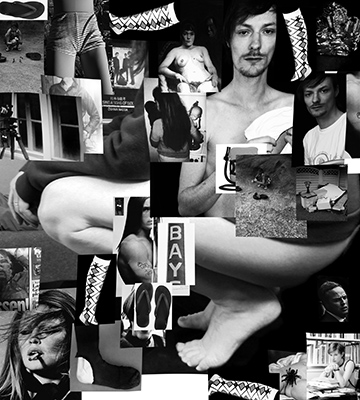Rosemarie Trockel became known in the eighties for her feminist works that addressed the status of women in the art world. Among these works were knitted pictures that consisted of large, mechanically produced woolen material stretched over a canvas frame, often incorporating recognizable symbols such as the hammer and sickle or the Playboy logo. These works questioned the belittling way in which feminine creativity was usually approached. The fact that she had the works made using industrial and mechanical fabrication raises the question of the authorship and authenticity of the works.
Another emblematic series from approximately the same period is called Oven Burners. This series consists of cooking plates that are mounted on a wall like canvases. Highlighting the traditional role that women are supposed to play, she uses the formalist arrangement of the plates to subversively allude to Minimalist Art, mastered solely by male strategists.
However, calling Trockel a feminist artist would be too narrow a definition, as the set of authoritative systems that she aims at is much broader. It includes any system that administers representations of reality and prescribes predetermined positions. She attacks established theories about sexuality, culture, and artistic production. She inserts in her work characters with shifting identities and gender roles, parodies to deconstruct societal phenomena, which compliment her constant investigation of theories from anthropology and sociology.
Drawings and collages have played a major role in her career. She uses them to cut and paste images that represent themes she has explored throughout her oeuvre. The images are composed or decomposed like shattered thoughts, creating a mingling of established notions of reality and the subconscious. These assemblages showing the iconography and themes of her oeuvre result in a supra-layer, which—coming with little explanation from the artist herself—leaves the viewer questioning his or her expectations of materials, artworks, exhibitions, and the subject matter treated by Trockel.
Rosemarie Trockel, born 1952 in Germany, lives and works in Cologne

